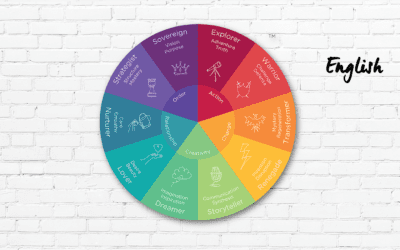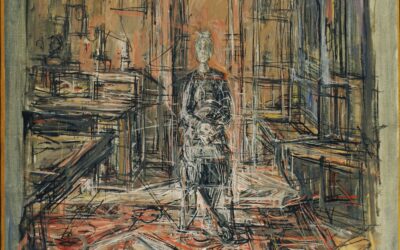Interview with Winston Schepps
🌟📚 Meet Win Scheppes: A Lifelong Friend, Mentor, and Dedicated Social Worker in Birmingham Alabama at 86! 🤝💼
Discover the inspiring story of Win Scheppes, a remarkable social worker who continues to make a difference in people’s lives well into his 86th year. With unwavering passion, he exclaims, “I love doing therapy so damn much,” showcasing his unrelenting commitment to his profession. For an incredible 57 years, he has served his community from his Homewood office, touching countless lives along the way. 🌟💙
But Win’s journey doesn’t end there! Recently, he accomplished a lifelong dream by publishing a heartwarming children’s book. This touching work aims to convey an essential message to children: It’s okay to cry. Through his book, Win aspires to provide comfort and understanding to young readers, fostering emotional well-being and resilience. Join the local Alabama community in celebrating Win Scheppes as he embarks on a new chapter as an esteemed author. 📖🌈
Joel: Win, there’s kind of a lot of pain in your story, and it has always been really compelling to me. So if you want, we can just start at the beginning of your life and go through your career. You’ve seen a ton of history too, especially in the profession when you were trained psychoanalytically.
This is an excerpt of Win’s Interview:
to hear the whole thing pleas check out the podcast or the youtube
Win: Oh, absolutely. I started with therapy in the beginning, but then it evolved. I have a master’s from NYU in psychiatric social work. But before that, I was in psychoanalysis, and then I became a psychotherapist.
Joel: Ah, I see. So there was a lot more Freudian influence back then. But things changed with the cognitive revolution and the rise of CBT.
Win: Yes, exactly. The profession has gone through significant changes over the years.
Joel: Well, where do you feel comfortable starting? Can you tell us a little bit about the early years of your life?
Win: Sure, Joel. I was born and raised in Ohio, the second of two children. I had an older brother who was four or five years older than me. I always felt he was more okay than I was, probably because of the theory that the first child is more like one parent, and the second child is more like the other parent. I was more like my mother, and my older brother was more like my dad. Unfortunately, I didn’t really know my dad because he passed away during World War II when I was seven or eight years old.
Joel: That must have been really tough for you.
Win: It was. I remember faking crying when we received the telegram about my dad’s death because everyone else was crying, and I wanted to be a part of the family. Looking back, I think I couldn’t say goodbye because I couldn’t accept that he was dying at such a young age. After my mom’s death when I was 11, I started stuttering, trying too hard to be perfect.
Joel: It sounds like those early experiences had a profound impact on you. How did you navigate through those challenges?
Win: Well, I’ve had my fair share of therapy. Over the years, I’ve seen different therapists, probably hundreds or even thousands of hours of therapy. It helped me reach a level of security and understand that it’s okay to feel what you feel. In fact, if you’re not psychotic or have a brain tumor, you can’t feel anything wrong. Therapy has been instrumental in my journey, and I believe many therapists have their own experiences in therapy that lead them to help others.
Joel: That’s an interesting perspective, Win. So, after those early years, what happened next in your life?
Win: After my mom’s death, I moved in with my aunt and uncle. My brother stayed in Hollywood to finish high school, and I was raised by my aunt. Eventually, I made the decision to attend West Point, following the footsteps of my father, uncle, and brother. But I reached a point where I felt compelled to change my path and pursue psychiatric social work instead. It wasn’t an easy decision, but it felt like the right thing for me.
Joel: That took a lot of courage, Win. How did your family react to your decision?
Win: My uncle, who was a colonel, tried to persuade me to stay in the military, telling me I would be poor if I left. But my brother, who also went to West Point, encouraged me to go for it. And I’m grateful that I did. I left the military, pursued my education, and eventually found my way to Birmingham, where I began my career as a psychotherapist. I worked with a variety of clients, individuals, couples, and families, helping them navigate their emotional struggles and find ways to improve their lives. It was a fulfilling and challenging profession, and I continued to learn and grow through my interactions with clients.
Throughout my career, I witnessed the evolution of psychotherapy approaches. While I initially trained psychoanalytically, I embraced the cognitive revolution and incorporated cognitive-behavioral therapy (CBT) techniques into my practice. I found that combining elements from different therapeutic modalities allowed me to tailor my approach to the unique needs of each client.
Over the years, I also engaged in continuous professional development, attending workshops, conferences, and seminars to enhance my skills and knowledge. I believe in the importance of staying up to date with the latest research and therapeutic advancements to provide the best possible care for my clients.
As the field of mental health continued to evolve, I adapted to changes and embraced new modalities such as mindfulness-based therapies and acceptance and commitment therapy (ACT). I found these approaches to be valuable in helping clients develop greater self-awareness, manage stress, and cultivate psychological flexibility.
Throughout my career, I have witnessed the transformative power of therapy in people’s lives. It has been a privilege to be a part of their journey and support them in their pursuit of healing and personal growth. My own experiences with therapy have also informed my practice, allowing me to empathize with my clients and create a safe and non-judgmental space for their exploration and self-discovery.
Joel: Thank you for sharing your story, Win. It’s evident that your personal experiences and professional journey have shaped you into the therapist you are today. Your dedication to ongoing learning and your commitment to helping others is truly inspiring.
Win: Thank you, Joel. It has been a meaningful and rewarding career, and I’m grateful for the opportunity to make a positive impact in people’s lives. If there’s one thing I’ve learned through my own experiences and working with clients, it’s that there is always hope for growth and healing, no matter how challenging the circumstances may be.
Joel: That’s a powerful message, Win. Thank you again for sharing your story and insights with us.
[Joel and Win continue their conversation, delving deeper into Win’s career and the lessons he has learned along the way.]



























0 Comments